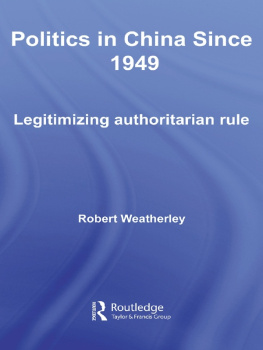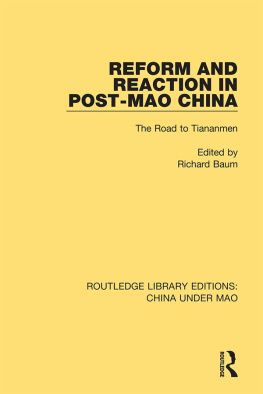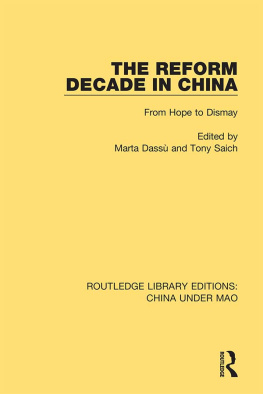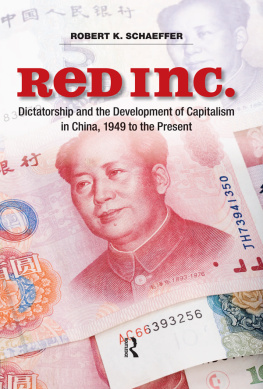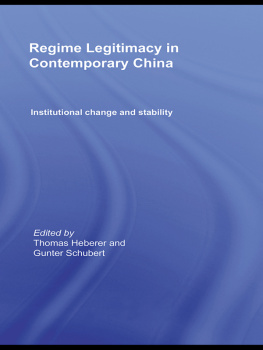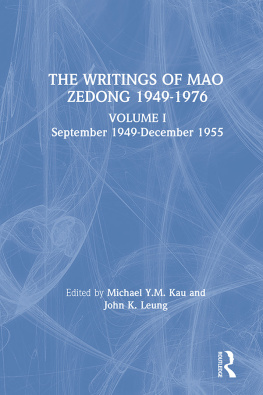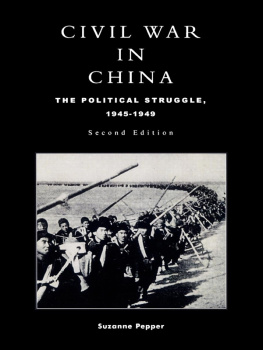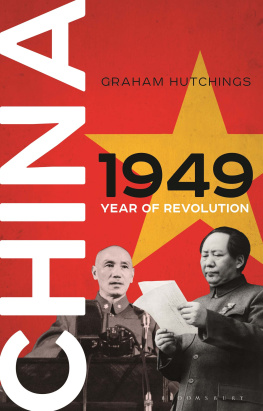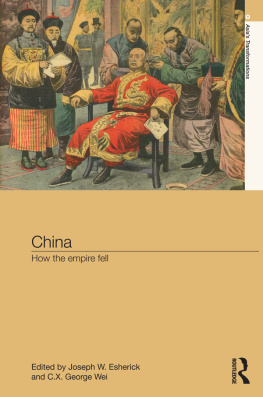Politics in China Since 1949
Since the victory of the 1949 revolution, the incumbency of the Chinese Communist Party (CCP) has been characterized by an almost relentless struggle to legitimize its monopoly on political power. During the Mao era, attempts to derive legitimacy focused primarily on mass participation in political affairs, a blend of Marxist and nationalist ideology and the charismatic authority of Mao Zedong which was reinforced by a widely propagated cult of personality. The dramatic failure of the Cultural Revolution forced the post-Mao leadership to discard these discredited paradigms of legitimacy and move towards an almost exclusively performance based concept founded on market economic reform.
Whilst this went some way towards resurrecting the popularity of the CCP, the reforms during the 1980s spawned a number of unwelcome but inevitable side effects such as official corruption, high unemployment and significant socio-economic inequality. These factors detracted from the partys legitimacy and culminated ultimately in the 1989 demonstrations in Tiananmen Square and throughout China. Since Tiananmen, the party has sought to diversify the basis of its legitimacy by adhering more closely to constitutional procedures in decision making and to a certain extent reinventing itself as a conservative nationalist party.
This probing study of post-revolutionary Chinese politics sets out to discover if there is a plausible alternative to the electoral mode of legitimacy or if legitimacy is the exclusive domain of the multi party system. Including key analysis of contemporary issues which challenge the authority of the CCP, Politics in China Since 1949 will be essential reading for scholars of Chinese studies, history and politics.
Robert Weatherley is a lawyer with the UK based law firm Mills & Reeve and heads the firms China group. He is author of The Discourse of Human Rights inChina and has written a number of academic articles on Chinese politics. He previously lectured on Chinese politics at the University of Newcastle and now teaches part-time at Cambridge University.
Routledge Contemporary China Series
1 Nationalism, Democracy andNational Integration in China
Leong Liew and Wang Shaoguang
2 Hong Kongs TortuousDemocratization
A comparative analysis
Ming Sing
3 Chinas Business ReformsInstitutional challenges in aglobalised economy
Edited by Russell Smyth andCherrie Zhu
4 Challenges for ChinasDevelopment
An enterprise perspective
Edited by David H. Brown andAlasdair MacBean
5 New Crime in China
Public order and human rights
Ron Keith and Zhiqiu Lin
6 Non-GovernmentalOrganizations inContemporary China
Paving the way to civil society?
Qiusha Ma
7 Globalization and theChinese City
Fulong Wu
8 The Politics of ChinasAccession to the World TradeOrganization
The dragon goes global
Hui Feng
9 Narrating China
Jia Pingwa and his fictional world
Yiyan Wang
10 Sex, Science and Morality inChina
Joanna McMillan
11 Politics in China Since1949
Legitimizing authoritarian rule
Robert Weatherley
First published 2006
by Routledge
2 Park Square, Milton Park, Abingdon, Oxon OX14 4RN
Simultaneously published in the USA and Canada
by Routledge
270 Madison Ave, New York, NY 10016
Routledge is an imprint of the Taylor & Francis Group, an informa business
This edition published in the Taylor & Francis e-Library, 2007.
To purchase your own copy of this or any of Taylor & Francis or Routledges collection of thousands of eBooks please go to www.eBookstore.tandf.co.uk.
2006 Robert Weatherley
All rights reserved. No part of this book may be reprinted or reproduced or utilised in any form or by any electronic, mechanical, or other means, now known or hereafter invented, including photocopying and recording, or in any information storage or retrieval system, without permission in writing from the publishers.
British Library Cataloguing in Publication Data
A catalogue record for this book is available from the British Library
Library of Congress Cataloging in Publication Data
Weatherley, Robert, 1967
Politics in China since 1949 : legitimizing authoritarian rule / by Robert Weatherley.
p. cm. (Routledge contemporary China series ; 11)
Includes bibliographical references and index.
1. Legitimacy of governments China History 20th century. 2. Authoritarianism China History 20th century. 3. Zhongguo gong chan dang History 20th century. 4. China Politics and government 1949 I. Title. II. Series.
JQ1516.W43 2006
951.05dc222005028644
ISBN 0-203-96501-9 Master e-book ISBN
ISBN10: 0415391091 (Print Edition)
ISBN13: 9780415391092
To Helen, Alice and Matilda
Acknowledgements
Special thanks to Shaun Breslin (University of Warwick), Phil Deans (University of London) and Peter Jones (University of Newcastle) for their thoughts and advice on various parts of this book. Thanks also to Helen Maddocks, Colin Graham, Jennifer Jin, David Clark, Alan Dignam, Amy Wallhead and to the librarians at Rock Road Library for their assistance with my numerous requests for inter-library loans.
Abbreviations
BSAFBeijing Students Autonomous Federation
BWFBeijing Workers Federation
CACCentral Advisory Committee
CCPChinese Communist Party
CDICCentral Discipline Inspection Committee
CMCCentral Military Commission
CRGCultural Revolution Group
CUSTCity University of Science and Technology
GNPGross National Product
KMTGuomindang (Nationalist Party)
MATMutual Aid Team
NPCNational Peoples Congress
OLVCOrganic Law of the Villagers Committee
PLAPeoples Liberation Army
PPAPoor Peasant Association
PRCPeoples Republic of China
PSCPolitburo Standing Committee
RMBRenminbi (currency of the PRC)
SARSSevere Acute Respiratory Syndrome
SEMSocialist Education Movement
SEZSpecial Economic Zone
SOEState Owned Enterprise
TVETown and Village Enterprise
VCVillagers Committee
WTOWorld Trade Organization

Map of the Peoples Republic of China.
Introduction
The measure of success for any ruling party is the extent to which it secures the willing obedience of the people it governs. Although obedience can be achieved by resorting to military force or other forms of coercion (e.g. police surveillance or terror), a regime which relies on force alone cannot always be assured of its continued incumbency and may be susceptible to mass public uprisings or challenges from within the political (or military) establishment. Relying exclusively on coercion can also be expensive, as successive administrations in the former Soviet Union discovered. Instead, if a regime wishes to enhance its prospects of staying in power indefinitely, it invariably needs the support of the people it rules; in other words it must be perceived by the populace as

